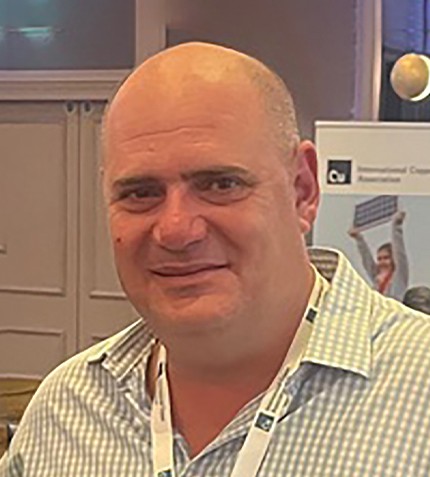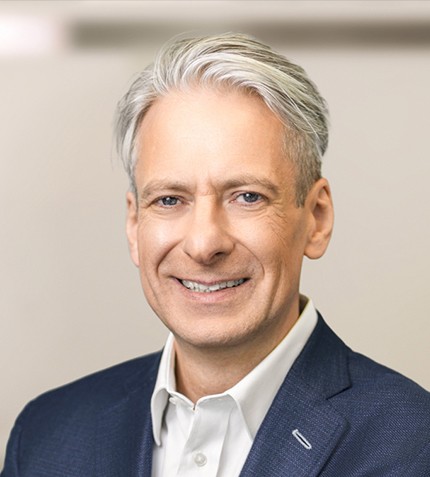
"Mining’s social license to operate hinges on access to and utilization of data."
Kati McCartney
PRESIDENT, FROSKR
Can you introduce FROSKR?
FROSKR was born in Sudbury, Ontario, which is an epicenter for regreening, reclamation and sustainable mining. We have tailored services for permitting, compliance, reporting, closure planning, financial assurance, and air quality emission studies, with an emphasis on GHG emissions and corporate social responsibility reports. We carved a niche for ourselves, championing authentic relationships with clients and Indigenous communities.
We assist with the whole mining cycle from planning and permitting to closure. We help with proactive mine planning, emphasizing reclamation and minimizing environmental impact from the project's inception by planning backward from the mine's end of life. We operate real-time environmental monitors that feed air quality data to smelters, the government, and a public website.
How can the industry harness data to improve environmental sustainability?
Mining’s social license to operate hinges on access to and utilization of data. Data’s true value emerges when you comprehend how to leverage it for communication. Mining, often marred by negative environmental narratives, benefits when data initiates conversations built on trust and transparency, especially when sourced from third parties like FROSKR.
Data is a tool for informing not just operations but also the right to operate, disclosing impacts and fostering accountability. In a time where mining is vital to the new green economy, data allows companies to maximize production and minimize negative impacts. Real-time data empowers companies to make informed decisions, preventing harm to communities and the environment. Transparency in reporting, driven by data, initiates a dialogue and compels companies to improve. Data is the storyteller, guiding the industry toward sustainable practices, ensuring production meets demand while minimizing environmental impact, and fostering continuous improvement.
Can you introduce the Towards Sustainable Mining initiative (TSM) and what it means for the industry?
TSM is recognized globally and helps achieve a balance between the extraction of minerals and metals while considering social, economic, and environmental factors. TSM comprises various protocols covering health, safety, Indigenous community relationships, water stewardship, and more. Within each protocol, mining facilities create, measure, and report on indicators. TSM emphasizes a facility-level assessment, providing a granular view rather than a broad company-wide perspective.
With our junior partners, we initiate discussions on disclosure, tracking, and ESG-related improvements. This involves conducting a gap analysis, initial assessment, and educating environmental departments. We help them understand the benefits, and data collection requirements, and guide them in achieving their sustainability goals. As an accredited firm, we also offer external verification services.
How can mining companies alter the perception that mining is an environmentally damaging industry?
This conversation starts by aligning the importance of mining in our everyday lives, and the criticality of mining in a new green energy economy. Over the past 5 years, there has been a noticeable shift towards ESG, climate change, and social license to operate, spurred by external pressures from investors, customer demand for eco-friendly products, and the impact on communities residing on traditional territories.
We draw inspiration from our First Nations partners, who inform decisions with the future seven generations in mind. Mining is slowly adopting this philosophy.
How does FROSKR help mining companies engage with First Nation communities?
We prioritize respect, openness to learning, and a willingness to embrace discomfort. It is essential to recognize that each community is in a unique stage of economic development, with distinct goals for community growth. Given that mining often occurs on traditional territories, we must acknowledge the invasive nature of its activities. Many First Nation communities lack the expertise to navigate impact benefit agreements and consultations. FROSKR acts as a third party, serving as a liaison or representative for the community's interests.
Why is it important for women to lead mining companies?
Achieving gender parity in executive positions is not just about acknowledging the issue but understanding its impact. Statistically, diversity in C-suite positions increases operating performance and promotes creativity and resilience. Society needs mining more than ever right now, and there is an industry-wide labor shortage on our horizon. Diversity is the key to disrupting sustainability, decarbonization, and safety goals. There are three steps: getting women to the door, getting them in the door, and getting them to stay. Women are leaving because they feel like they cannot advance. Although it is easy for women in mining to feel lost in a sea of blue, gray, and black suits, we cannot give up.











